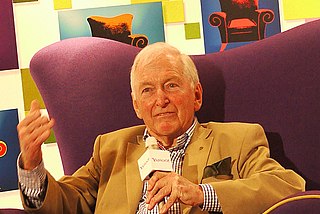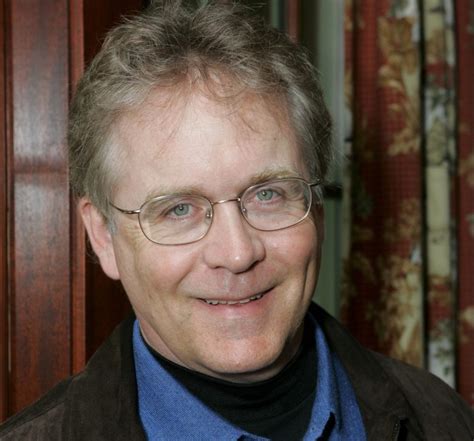A Quote by Albert Einstein
I believe in mystery and, frankly, I sometimes face this mystery with great fear. In other words, I think that there are many things in the universe that we cannot perceive or penetrate, and that also we experience some of the most beautiful things in life only in a very primitive form. Only in relation to these mysteries do I consider myself to be a religious man.
Quote Topics
Also
Beautiful
Beautiful Thing
Beautiful Things
Believe
Cannot
Consider
Experience
Face
Fear
Form
Frankly
Great
I Believe
I Believe In
In Other Words
Life
Man
Many
Most
Most Beautiful
Most Beautiful Thing
Myself
Mysteries
Mystery
Only
Other
Penetrate
Perceive
Primitive
Relation
Religious
Religious Man
Some
Sometimes
Things
Things In Life
Think
Universe
Very
We Cannot
Words
Related Quotes
The religious man, the mystic, tries to explore the mystery of death. In exploring the mystery of death, he inevitably comes to know what life is, what love is. Those are not his goals. His goal is to penetrate death, because there seems to be nothing more mysterious than death. Love has some mystery because of death, and life also has some mystery because of death.
I believe there is something of the divine mystery in everything that exists. We can see it sparkle in a sunflower or a poppy. We sense more of the unfathomable mystery in a butterfly that flutters from a twig--or in a goldfish swimming in a bowl. But we are closest to God in our own soul. Only there can we become one with the greatest mystery of life. In truth, at very rare moments we can experience that we ourselves are that divine mystery.
In this world are very few things made from logic alone. It is illogical for man to be too logical. Some things we must just let stand. The mystery is more important than any possible explanation. The searcher after truth must search with humanity. Ruthless logic is the sign of a limited mind. The truth can only add to the sum of what you know, while a harmless mystery left unexplored often adds to the meaning of life. When a truth is not so important, it is better left as a mystery.
I love mysteries. To fall into a mystery and its danger ... everything becomes so intense in those moments. When most mysteries are solved, I feel tremendously let down. So I want things to feel solved up to a point, but there's got to be a certain percentage left over to keep the dream going. It's like at the end of Chinatown: The guy says, 'Forget it, Jake, it's Chinatown.' You understand it, but you don't understand it, and it keeps that mystery alive. That's the most beautiful thing.
If death disappears there will be no mystery in life. That's why a dead thing has no mystery in it, a corpse has no mystery in it, because it cannot die anymore. You think it has no mystery because life has disappeared? No, it has no mystery because now it cannot die anymore. Death has disappeared, and with death automatically life disappears. Life is only one of the ways of death's expression.
This element of surprise or mystery — the detective element as it is sometimes rather emptily called — is of great importance in a plot. It occurs through a suspension of the time-sequence; a mystery is a pocket in time, and it occurs crudely, as in "Why did the queen die?" and more subtly in half-explained gestures and words, the true meaning of which only dawns pages ahead. Mystery is essential to a plot, and cannot be appreciated without intelligence.
Awe is an intuition for the dignity of all things, a realization that things not only are what they are but also stand, however remotely, for something supreme. Awe is a sense for transcendence, for the reference everywhere to mystery beyond all things. It enables us to perceive in the world intimations of the divine. ... to sense the ultimate in the common and the simple: to feel in the rush of the passing the stillness of the eternal. What we cannot comprehend by analysis, we become aware of in awe.
Within the mystery of life there is the infinite darkness of the night sky lit by distant orbs of fire, the cobbled skin of an orange that releases its fragrance to our touch, the unfathomable depths of the eyes of our lover. No creation story, no religious system can fully describe or explain this richness and depth. Mystery is so every-present that no one can know for certain what will happen one hour from now. “ It does not matter whether you have religion or are an agnostic believe in nothing, You can only appreciate (without knowing or understanding) the mysteries of life.
Human beings are like detectives. They love a mystery. They love going where the mystery pulls them. What we don't like is a mystery that's solved completely. It's a letdown. It always seems less than what we imagined when the mystery was present. The last scene in `Blow Up' is so perfect because you leave the theater still dreaming. Or the end of `Chinatown,' where the guy says `Forget it, Jake, it's Chinatown.' It explains so much but it only gives you a dream of a bigger mystery. Like life. For me, I want to solve certain things but leave some room to dream.
I have a sense of them being Easter religions, for some reason. Christianity, of course, is a mystery religion, too, and I believe that Arthur Machen was one of those especially interested in the link between the pagan mysteries and the Christian ones. So, my experience was also a Machenesque experience.



































